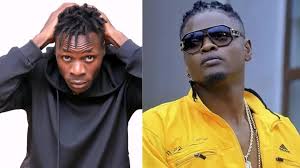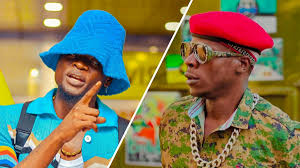As we celebrate the 58th Anniversary of Independence, a veteran journalist, HAJI AHMED KATEREGGA MUSAAZI, leads us through different celebrations especially when we either did not celebrate or celebrated indoors:
As preparations for the 23rd Independence were going on in 1985, the ruling Military Council announced that it will not be celebrated at Kololo Independence Grounds or any other public place usually at Entebbe Old Airport, Nakivubo War Memorial Stadium or district bomas, instead, the Chairman of the Military Council and Head of State Gen. Tito Okello Lutwa, will deliver a speech to invited guests at Uganda International Conference Center.
That was at the climax of a five-year civil war between government forces and National Resistance Movement/Army (NRM/NRA) guerillas led by now President Yoweri Kaguta Museveni. They had cut off Southern and Western Uganda which were liberated zones under an Interim Government led by Al Haji Moses Kigongo as the Chief Administrator with a cabinet of commissioners including Gerald Ssendawula as Minister of Trade, and with one Permanent Secretary now Lt. Col. Jacob Asiimwe.
Kampala itself was like former Beirut, where Kampala South was called “Half London” for being relatively peaceful under Uganda Freedom Movement (UFM ) rebels led by the late Dr. Andrew Lutakome Kayiira based at Kansanga, Kampala South or Port bell road under a UFM break away group , Federal Democratic Movement of Uganda (FEDEMU) under the late Lt. Col. George Nkwanga and areas of Old Kampala, Makerere and Mulago were under Uganda National Rescue Front (UNRF) under Gen. Moses Ali and Former Uganda National Army (FUNA) under the late Maj. Gen. Isaac Lumago.
While reacting to the Military Council announcement, my then headmaster of St. Victor’s SSS Kitaasa in Bukomansimbi District, the late Bamweyana referred to Okello as “Mayor of Kampala.” I think he could not be a defacto Lord Mayor of the whole political and commercial capital but only a Mayor of the Central Division.
Ever since NRM captured state power in 1986 and ushered in peace, security, stability and tranquillity despite pockets of resistance in the North and North East and later mid-west that are all gone cases, Ugandans have been celebrating independence and other national and international days in Kampala or elsewhere without any hindrance. It is only the outbreak of the Covid-19 pandemic that has threatened us and the entire humanity and we shall celebrate it indoors with a televised address by the President. The theme for today’s independence is celebrating Uganda’s steady progress towards economic take off and self-sustaining economic growth.
We first celebrated independence indoors in 1965. According to Akena Adoko (From Obote to Obote 1983), Uganda could not organize 3rd-anniversary independence celebrations in fear for the lives of the President Sir Edward Muteesa, the Prime Minister Dr Apollo Milton Obote and the Secretary-General of the then ruling party, UPC, Grace Ibingira as there was a plot to assassinate them.
According to Prof. Dani Wadada Nabudere (Imperialism and Revolution in Uganda (1980), during the period of the Cold War between the US and its NATO allies and defunct USSR and ITS Warsaw Pact allies, the Grace Ibingira Group had got one million US Dollars from CIA to fight and neutralize the Leftists led by the founder Secretary General of UPC John Kakonge, who included among others, Paulo Muwanga, Bidandi Ssali, JKintu Musoke, Kirunda Kivejinja and others. At the Annual UPC Conference in Gulu, Ibingira group with support of Obote, the Vice President Sir William Wilberforce Nadiope, and others imported in hooligans who voted Kakonge out and replaced him with Ibingira.
However, the Obote-Ibingira honeymoon was short-lived as the latter allied with Muteesa to get Obote out of Government, Parliament and party using the gold allegations that implicated Obote, Onama who was Defence Minister, Nekyon who was Minister for Information, Culture and Community Development and Amin who was Deputy Army Commander. It was first revealed in Parliament in late 1965 by Daudi Ochieng, a KY MP getting information from his brother Dr. Martin Aliker, according to Bob Astles in his book, A story of 56 Tribes.
So, a public function could not be organized for fear of the lives of Obote-Ibingira allies. But soon later by 1966, Obote had overreacted against the Mutesa-Ibingira group, by appointing the Army Commander Mutesa’s ally Brig. Shaban Opolot, as Chief of Defence Forces, in accordance with the Uganda Armed Forces Act (1964) and appointed Col. Idi Amin, Army Chief of Staff. The act came as a result of 1964 army mutinies in Uganda, Kenya, Tanganyika and Zanzibar over pay and promotions.
The mutinies were crushed by British troops. In Tanganyika where the late Julius Nyerere is credited to have disbanded the Tanganyika Rifles and built TPDF, he retained those that were personally loyal to him including who later became Gen. David Msuguri who commanded Tanzanian forces and Ugandan exiles that ousted Idi Amin regime in 1979.
On May 24th 1966, Obote who had abolished titles of President and Vice President in February, and who had abolished 1962 Independence Constitution with 1966 Pigeonhole Constitution in April and assumed the title of President, ordered Amin to storm Mengo palace and flash out Mutesa dead or alive and the rest is history.
Although between 1966 and 1970 there was a state of emergency first in Buganda and later in the whole of Uganda, Independence and other celebrations were held except in 1970 when the official pretext was mourning for the death of Gamal Abdu Nassir, President of the Arab Republic of Egypt, but the actual was a fear of a possible coup by the then Chief of Defence Forces Maj. Gen. Idi Amin Dada.
Incidentally, Amin was the one who represented Uganda at the funeral of Nasser in Cairo. But he overstayed there fearing that he could be arrested upon return. According to Nabudere, Amin came later after Independence Day had passed after he had been assured by the Israeli military instructors in Uganda through Defence Minister Felix Onama, that they would pre-empt any attempt of his arrest by overprotecting him. The long-awaited coup took place on January 25th 1971 and the rest is history.
On my part, l joined the celebrations in my home Mawogola Sub District in 1975, where the Chief Guest was the Assistant District Commissioner Charles Olobo who was later killed in 1977 during the killing of Acholi and Langi elites, deputized by the late Corporal Francis Kasozi, the Saza Chief. After singing, the Gombolola Chief Mijwala Diriisa Sserwada chased school children out of Community Center where guests enjoyed beer and soda, which were scarce then as a result of 1972 Economic War declared by Idi Amin where Asians who had dominated the commercial and industrial sectors, were expelled and their businesses were allocated to indigenous Ugandans like the late Nasser Ntege Ssebaggala. They lacked experience.
Then in 1977, South Buganda Province under Abdullah Amin, organized the celebration again at Ssembabule and there was awarding of best gombolola in producing cotton and one of them was Matete under a chief called Koire.
Then in 1982, Masaka District Administration again held the same at Ssembabule and this time the chief guest was DC Isaac Muwanga, who called upon people to double their production of food and cash crops and thus each homestead must have an acre of cassava. The cattle corridor had been hit by drought and famine in 1980.
In 2018, Ssembabule, which had become a district in 1997, hosted national celebrations where the Chief Guest was President Museveni and Independence medals were awarded but most of the wrong people who never participated in the liberation struggle as right people were left out. By now, Mpigi-Gombe-Kanoni-Ssembabule road and Villa Maria- Ssembabule road are tarmac, Masaka-Mubende highway will be part of the oil road, piped water has reached town councils and rural electrification project has benefited Ssembabule greatly. Nyendo-Bukakkata road under construction and soon Najjanankumbi-Busaabala in Makindye Ssaabagabo Municipality, Kira-Kasangati-Matugga, and Nyendo-Masaka, to mention but a few.
So, this time is a war period and we expect the Commander In Chief to address us as he has been doing ever since the “war” broke out in March” changing tactics but not a strategy. Fortunately, WHO has, at last, accepted to include African herbs, as possible medicine for cure and or prevention of Coronavirus including that from Madagascar.
In his last address, the President promised us that, God willing, by the end of this year, we may have a local cure for the pandemic and if African countries pull together, that is the meaningful Independence. To borrow from the late Oginga Odinga, Uhuru na Umoja (Independence and Unity).














































Discussion about this post